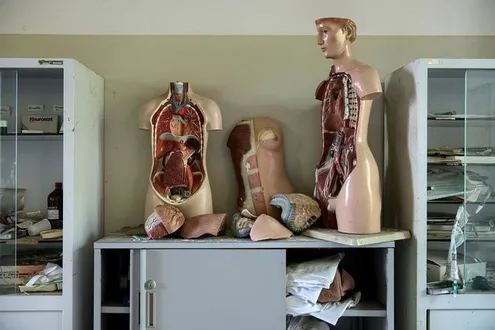When a person has an eating disorder, they develop an unhealthy relationship with food, resulting in an obsession with food, eating patterns, weight and body shape.
People with eating disorders use food to try and control their feelings, either through starving themselves and eating too little, or over-eating or purging. The type of eating disorder a person develops can vary, and anyone can develop an eating disorder regardless of background, age or circumstances.
There are different types of eating disorders, and the most common are anorexia nervosa, bulimia nervosa and binge eating disorder. Eating disorders commonly develop during adolescent years.
If they are untreated, they may continue into early adulthood, or a person may find that they relapse at later stages of their life. Eating disorders lead to serious health problems because of the way they deprive the body of vital nutrients it needs to function properly.

There is no exact reason why someone develops an eating disorder, or a precise cause, but there are signs of eating disorders to look out for. It is commonly argued that societal pressure on people to be thin and look a certain way fuels eating disorders and unhealthy body images, as do social pressures from social media and other media such as TV and magazines.
Some people develop an eating disorder because it is their way of feeling in control of their body and life. A mix of genetic, psychological and environmental factors can also contribute to the development of an eating disorder, including mental health conditions such as depression and anxiety, stress, having a fear of being fat, bullying, an abusive environment, being criticised for weight or body shape, or family history of eating disorders.
An eating disorder can have an upsetting impact on a person's life and the lives of those around them. What causes a person to develop an eating disorder varies greatly.
Eating disorders can be linked to mental health disorders, so if a person is suffering from anxiety, depression or stress, they are more likely to develop an eating disorder. Having obsessive or compulsive feelings is also a factor.
Environmental factors can cause a person to develop an eating disorder. For example, if they are feeling under pressure at work, unhappy or being bullied at school, or have an unhappy home life.
Changes in hormones can also be an underlying cause. Everyone is different, so the way an eating disorder develops and the way it affects a person will vary based on the individual.










